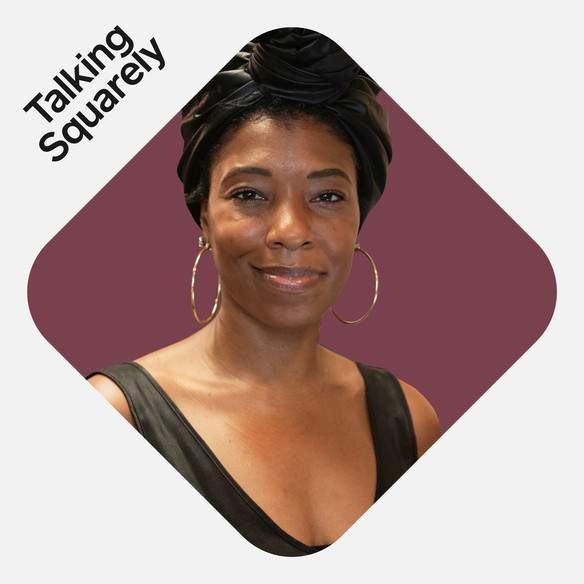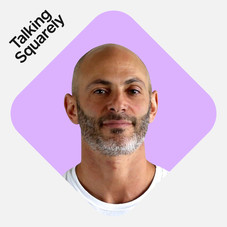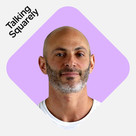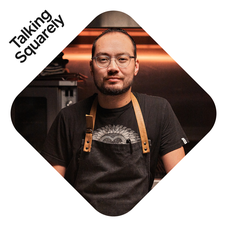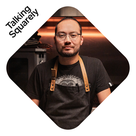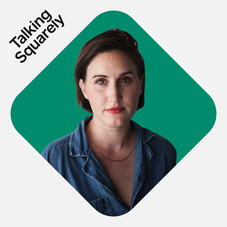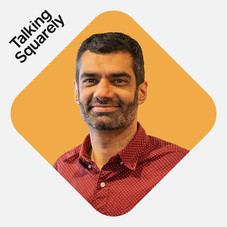Table of contents
A little bit about the episode featuring Black business owners…
In part two of this episode, we explore the day-to-day experiences of being a Black business owner in America. From getting started to fostering a community, we’ll discuss economic inclusion and entrepreneurship with Black business owners from across the United States.
This episode features Shamar Cotton of Everett & Jones BBQ in Oakland, CA; Lauren Stovall, Director of Marketing at Hot Sam’s Detroit in Detroit, MI; and Yolanda Owens, owner of iwi fresh in Atlanta, GA. Want to know a little bit more about our host? Follow Square’s Nelson Murray for more.
In part two of talking squarely about Black businesses in America, Square sits down with three Black business owners — Hot Sam’s, the oldest men’s clothing store in Detroit, Everett & Jones, a barbecue restaurant in Oakland started in the early 1970’s and iwi fresh, an Atlanta based spa started in 2003.
“Coming from where my grandmother started ‘til my mother and everybody. Our biggest thing has always been financing,” says Everett & Jones BBQ manager Shamar Cotton “So if you’re trying to upgrade and stuff like that, it’s going to cost you a pretty penny. On top of that, you’re trying to keep your workers working. And that’s been one of our biggest problems, the financing.”
In the past he says banks have been less willing to lend money to restaurants as they were considered a risky investment, even their business which has been operating for over 40 years.
Hot Sam’s Detroit Director of Marketing Lauren Stovall says her family experienced similar obstacles. “I think, again, an awakening seems to be happening around the notion of just the racial disparities and how difficult it is for Black people to get capital, to get access to money. I know my father and his business partner had a very trying time. That’s why I said, that’s a whole ‘nother story.”
All three businesses count family as the heart of their mission whether they are generational businesses or not.
For iwi fresh owner Yolanda Owens, COVID-19 was a turning point as small business owners saw newfound support from the community. “I think of the Black Wall Street and that entrepreneur love, like I say, going to that heart chakra and really supporting us on, like Shamar said, so many different ways, not just money, but just really putting out great vibrations, wishing us well, wanting to see us win, really doing things that really support us in so many ways, really thinking about being intentional about how do I support this Black business?” she says.
“What can I do to make them take their business to the next level? And it could be of various things that it is, but I think bringing back that old entrepreneur spirit is what I feel that we’re moving into that direction of.”
Full transcript below:
Yolanda Owens:
I think it’s time for us to really go deep into that entrepreneurial spirit that created the Black Wall Street, that spirit of supporting and creating those legacies.
Nelson Murray (host):
Hi. I’m Nelson Murray, and this is Talking Squarely. In this series, we bring together independent business owners to have frank discussions and share their perspective on some of the most pressing issues impacting their lives and livelihoods. Today, we continue our conversation about what it’s like to be a Black business owner in America in 2020. In our last episode, Killer Mike discussed what it was like growing up in Atlanta and getting his barbershop up and running. Now, we’ll hear from three additional business owners on their journeys to entrepreneurship and what they’ve learned along the way.
Lauren Stovall:
Hot Sam’s opened its doors in 1921 by a Jewish family, the Freedman family, Sam Freedman. That is where the name Hot Sam’s comes from.
Nelson Murray (host):
That’s Lauren Stovall. Her family’s shop is the oldest men’s clothing store in Detroit.
Lauren Stovall:
My father started working there. His name is Tony Stovall. He started working there in 1974, I think. And then in 1975, Cliff G. Green, who was also the co-owner of Hot Sam’s today, they were both salesmen at the store. And then in 1994, they then bought Hot Sam’s from the very store that they worked at.
Nelson Murray (host):
Our second guest, Shamar Cotton also runs a business with a long history.
Shamar Cotton:
Everett and Jones was started by my grandmother back in 1973, a couple of years before I was born. It started off in Oakland, in 90th and East 14th in Oakland, California. My grandmother started with all my aunts and my mom and stuff, there was nine of them at the time. So it was just at that time, it was a nice Black Renaissance of barbecue places in the Bay Area. There was Flint’s and there was, Dubb’s came later and KC’s BBQ is still around, but my grandmother used to work I think for Mr. Flint once upon a time and then as she got older, as he got older, and he had his wife and stuff, they had – my grandmother and the wife, I guess they didn’t get along. So she went out and started her own business to support her own, her nine kids. And I am basically a living legacy of that, from my grandmother not having passed a third grade education, not having much for her background, but she started this business in 1973 in Oakland, which we ended up spawning out to having about 10 restaurants at the time. We’ve been in the Oakland coliseum. We’ve been in a Shoreline Amphitheater. We’ve been in a lot of places around the Bay Area.
Yolanda Owens:
I’m just in awe here to hear the two stories here of these, like what Lauren said the legacy preservers. I love that. I mean it’s amazing. I mean this is the honor to be in you all’s presence. I love that. I love it. It’s just really just gives me the chills.
Nelson Murray (host):
That’s Yolanda Owens, our third guest. While her business hasn’t been around for quite as long as Lauren and Shamar’s, it still is rooted in family history.
Yolanda Owens:
When I started iwi fresh in 2003, my grandmother, she really didn’t start it but I like to say that she’s the real founder of iwi Fresh. We called her a home remedy queen and she used to make all of her products from the kitchen and from their garden. And so I was inspired by that, but I didn’t realize that I was inspired by that until later on in my life. I created iwi fresh and I was working iwi and corporate at the same time. And then, I left full time and I started my business and I started making my own products. And then, I opened up a spa because there was no spas that were toxin-free. Everything was chemicals. So I opened up a farm to skin spa. I have my own farm and I go to my farm. I partner with local farms here and I have my farm and I hand pick all the fruits and vegetables. I juice them. I mix them and I make skincare recipes.
Nelson Murray (host):
Thank you for sharing that origin story with us, Yolanda. Let’s fast forward to the present day. 2020 has been a wild year with the pandemic and with racial justice issues, period but what were some of the challenges just being a Black business owner that existed long before 2020, but that you’re still facing day-to-day today?
Lauren Stovall:
What’s happening really in Detroit and Downtown Detroit specifically, which is where our store is located and has always been located, is this notion of gentrification.
Shamar Cotton:
Oh, we know it very well out here.
Yolanda Owens:
Yes, very well.
Lauren Stovall:
Yeah. So, I mean when you think about that, that is something that has been plaguing Black businesses, Black communities for quite some time. I remember there was this community in Detroit called Black Bottom. Now keep in mind, Detroit is 80 percent Black. Now Black Bottom was a community in Detroit, not far actually from where our store is, downtown Detroit.
So it was literally kind of around the corner from where we are right now and it was a neighborhood that really was vibrant with jazz music and some nightclubs and things like that, but it was poverty stricken. And because most of the residents there were kind of factory workers and so, it was demolished in the ’60s, and it was clear that it was kind of demolished out of a way to make room for this new freeway intersection and it was promised that when they tore it down and brought this new freeway intersection, that they were to build new public housing for that community. Well, that never happened. What happened was there were, there were new development, but it was not affordable and it was not made accessible for Black people.
And so still today, it’s very difficult, when I go back to gentrification, what do we see? Higher rents, mortgages, property taxes, etc. and so, we are kind of in the midst of that. We got new landlords in the process of this revitalization. So we had one thing going on. Then we get new landlords, new development is happening. So what does that mean? Everything is going higher, but while there’s still incentives though for new businesses to come in, but never mind, we’ve been here since ‘21, 1921. We’re really welcoming you, new landlords, to the city of Detroit, but you raise our rent and I get all of it. And let me tell you what is very key and I’ve shared this before. It is about relationships. And I think when big businesses and small businesses start working together, it is considered then a partnership because you realize that you need me just as much as I need you. I think that is something that has been an awakening since this new kind of … I call it a racial pandemic ‘cause we went from COVID-19 then to a racial pandemic. But I think that that has been prevalent is, again, that need that is resonating, that we all need one another.
Yolanda Owens:
Amen. I totally agree. For me, I experienced that firsthand, being in downtown Atlanta where I was for 13 years, and we got a new landlord that literally, you can see it blatantly, was really putting people out. The Black-owned businesses had to move out because they were finding loopholes in the lease, loopholes in the system. Things were happening so blatantly and it was legal. It was legal, but it wasn’t fair, with legal and Black business, a lot of the business, it was like 10 of us. And now, it’s down to three because they could not survive through all of the different scenarios that they were implementing that were legal, but it was just like, “Really? For real? You’re going to change the lease. You’re going to charge me for this. You’re going to now say this.”
I mean, we had, and I’m going to give you an example, the new landlord that came in, everybody was paying their rent however they were paying it and their accountant was holding everybody’s checks for like five and six months at one time, and then they were taken within two or three months in deposit and you know, if you’re a small business like me who’s only been around that long, that hurts.
Nelson Murray (host):
Yeah. And Shamar, what about you?
Shamar Cotton:
Coming from where my grandmother started ‘til my mother and everybody. Our biggest thing has always been financing. The people that supported us a lot in the Bay Area, Black, white, Asian, Latino, there, we got all kind of people that come and support us. But once, if we ever try to grow, ever tried to upgrade and stuff like that, especially our Berkeley locations, one can do so much, finances is kind of tight and then being in the Bay Area, everything out there is, we’re one of the most expensive places in the world to be at right now. So if you’re trying to upgrade and stuff like that, it’s going to cost you a pretty penny. On top of that, you’re trying to keep your workers working. And that’s been one of our biggest problems, the financing.
And then with this going on right now, it kind of helped. I mean it’s a blessing in disguise. Like I said, it’s a nightmare that I would never thought would happen, but it is a wonderful nightmare as far as people opening their eyes, finances, banks actually willing to help us out now. They’re not considering restaurants. This – what they call is … since was always one of the highest risk things to do was a restaurant, it’s like they don’t. Companies, banks don’t like to lend out money to restaurants ‘cause it’s considered a very, very risky thing. Even though we’ve been in business for over 40 years, that should say something. But it really meant nothing to the banks and if I go in there, ask for financing and with my mother being the owner and stuff like that, so our biggest thing is finances.
Lauren Stovall:
I think people are seeing that now and so, I think that that is so important. I think, again, an awakening seems to be happening around the notion of just the racial disparities and how difficult it is for Black people to get capital, to get access to money. I know my father and his business partner had a very trying time. That’s why I said, that’s a whole ‘nother story. Talk about buying a business, never mind that you worked there, you were a salesman there. They made it extremely difficult for my father and his business partner to buy the business. Nevertheless, because I told you, Black people, we are resilient. We persevere. They were able to do it, but the process had so many challenges.
Yolanda Owens:
I will say after COVID, it seems like there’s this real newfound support for small business owners now. And people, yeah, and love and people are really wanting to reach and support small [business]. They care about small business now. I feel like there’s more caring around that. Before, I didn’t really – I saw it, but I didn’t feel it the way that I feel it now.
Nelson Murray (host):
When each of you hear someone saying, “What can I do to support Black-owned businesses in my community,” wherever these people are, what do you say to them? What are answers to that question that you think folks might not have thought about yet?
Shamar Cotton:
The one thing I say is, of course, spend your money there, but also spend your time and your effort and spread the word. It’s not just about spending your dollars with them. I mean you got to spend dollars and support the business so they keep going, but taking that extra step of telling a friend that tell the friend that tell a friend ‘cause word of mouth is the best advertising that you can have.
Yolanda Owens:
Yes, I totally agree. I think of the Black Wall Street and that entrepreneur love, like I say, going to that heart chakra and really supporting us on, like Shamar said, so many different ways, not just money, but just really putting out great vibrations, wishing us well, wanting to see us win, really doing things that really support us in so many ways, really thinking about being intentional about how do I support this Black business? What can I do to make them take their business to the next level? And it could be of various things that it is, but I think bringing back that old entrepreneur spirit is what I feel that we’re moving into that direction of.
Lauren Stovall:
I’m hearing this new buzzword now that I never really used before, but it has been widely used now in terms of allies, right? I think it’s so important that allies and everyone really understand the, I go back to the history, the history of this country in terms of how they view Black people. Because what I’ve come to understand, and I want others to understand, is sometimes there are implicit biases and if we don’t recognize our implicit biases, we will start seeing that they show up explicitly. What do you understand about the portrait of Black people? What do you understand about the history of Black people in this country and how it just stems from before your having a Black friend, but what has been historically done in this country to Black people, how have Black people been viewed in this country?
If we go back to history, we were literally viewed as three-fifths of a person, not even a whole person. So if you don’t look at someone as a whole person, how do you think that you would treat them? And so I think it’s so important that we do a heart check during this time and I’m seeing a lot of people do that. I have so many friends, Black and white, and of all different races doing heart checks now. And we’re having hard conversations, uncomfortable conversations that we never had before, but this has all came about during this time. These are the implicit biases. Until you see someone as a whole human being, you may not treat them as a whole human being.
Nelson Murray (host):
Speaking of community, you are all sort of inherently part of your own community as entrepreneurs. What sort of advice would you give to other Black entrepreneurs who are considering starting their own businesses today? What should they be looking for in terms of opportunities and what can they be doing in terms of lessons to learn from folks like yourself who have already started their own businesses?
Shamar Cotton:
You got to find that niche that you really love and you’re passionate about. Mine has always been restaurants, hotels and restaurants, besides sports. And then once I realized I wanted to do more hotels and restaurants, I put it all into my family business. So I will say the same for whoever it is out there, we’re three different businesses on this call. Everybody found their niche and their passion. Once you find that niche and that passion, you go all in and go all out. Don’t worry about failing. And plus, you need to fail ‘cause if you don’t fail, you won’t succeed.
Lauren Stovall:
I love that. I agree. You know what? ‘Cause what I think and I see a lot, especially in Detroit, that entrepreneurship can be kind of trendy and everyone thinks that that’s what they want to do. I want to be my own boss. I want to because it sounds really cool. I guess it sounds glamorous, but I think a lot of people don’t attribute it to grit, that there’s a lot of grit. There’s a lot of things that people don’t see. Everyone is not built for the entrepreneurial lane. Everyone is built for the corporate lane.
Yolanda Owens:
I agree with both of them. Passion and purposeful and serviceful, I think those are the key elements. You’ve got to really understand why you’re doing it and you – first of all, you really need to understand who you are and what your purpose is on life here to do because everybody has a different platform on how they’re going to convey their purpose. Anybody can open a business. That’s nothing. That’s easy. That’s the easy part, but it’s maintaining and it’s, like you said, and it’s the service piece and the purposeful field that you have to implement along the way, is that happening and how do you maintain that and keep that going? That’s the part that a lot of people don’t understand when they just say they want to be their own boss. There’s more to it than that. So you really got to understand why you’re doing it.
Nelson Murray (host):
Each of you have emphasized that you run businesses in very different parts of the country and Yolanda, you’ve talked about issues with gentrification and Shamar, you talked about difficulty accessing things like funds through financial institutions. I want to, as we sort of come to a close here, I want to ask you all a two-part question.
What are some things that cities and big companies, including companies like Square that build tools for independent business owners, what are some things that cities and big companies should be doing and thinking about with regard to empowering Black entrepreneurs like yourself? What should be different? What should be better or made easier?
Shamar Cotton:
I will say I like that question ‘cause I was just thinking about the City of Berkeley. Most people know about us in the City of Berkeley from Coach Herman Edwards to Marshawn Lynch to a lot of people that went to Cal Berkeley. The city should reach out to Black businesses like my mother, like myself and kind of embrace us that we’ve been there for over 40 years in the little tiny city of Berkeley and put us out there a little more. I’ll just say the city of Berkeley needs to reach out to us, talk to us, get to know us more, well, some of them do know us or kind of this community, but and push us out there. Let them know that we’re part of the city as well.
Nelson Murray (host):
Well, do you think that that’s something that cities outside of Berkeley also have an opportunity to do is to actually get to know the Black or other business owners who are people of color?
Shamar Cotton:
I think they should. I mean ‘cause I mean that helps. It helps you. It helps us. It helps the city and it gives the city a culture.
Nelson Murray (host):
Yolanda, what comes to mind for you? What are some things that cities and big companies like Square can do to empower Black entrepreneurs?
Yolanda Owens:
I think that, very similar to what Shamar said, I mean really reach out and really expose us, help provide us, get us out there. But one of the things I always said is that reach out. I think just recently, I think it was a Black girls’ code, a large corporation, who was that? Black, somebody took them and they just pretty much took them in their arms, this corporation, and provided money for them for the next like five or six years for them to sustain. I think big things like that could be great because they’re now, they’re set, they’re good. So, the company just not only gave them a few thousand dollars, they actually gave them enough money to help them sustain for the – I think she said for the next six years, they will be able to survive comfortably and probably pass that, too.
Lauren Stovall:
I agree with what has been said by Shamar and Yolanda. I want to see more large businesses and small businesses being considered partners. I would love to see every large corporation have more Black faces, more Black voices at the table in decision-making seats. I would love to see the diversity in corporations. I think sometimes these things can seem like just for the moment. And I just would love to see the sustainability of this synergy that seems to be happening around the nation, that it not just be for a moment, but that it really be a movement and a way that stays and sustains.
Lauren Stovall:
I love what I’m seeing that is happening in terms of collaboration and partnership with small businesses and large businesses and, again, with Blacks and with whites. I love seeing the cooperation, the working together, and I want to imagine an America without racism, and I want to believe that that will happen. And so, that is my prayer is that this moment that we’re living in, that it becomes a movement.
Nelson Murray (host):
A special thanks to Shamar, Yolanda and Lauren for their time and thoughtful discussion. Everett and Jones BBQ has locations in Berkeley and Oakland, California. To learn more about the restaurant and check out their menu, visit www.eandjbbq.com. To book an appointment at Yolanda’s spa, iwi fresh and shop for her natural products, visit www.iwifresh.com and Hot Sam’s Detroit can be found on the corner of Monroe and Randolph Street in Downtown Detroit. To shop online, visit hotsamsdetroit.com.
You’ve been listening to Talking Squarely, a Square Production. This episode was produced by Mallory Russell, Cindy Lewis, Dushane Ramsay, Evan Groll, John Scarpinato and Travis Gonzalez. Our music was composed by Jordain Wallace with sound recording by Sorrentino Media and Jamie Cohen. I’m Nelson Murray. Thanks for listening.
The views and opinions expressed in Talking Squarely are those of our guests and do not reflect the official policy or position of Square.
![]()

